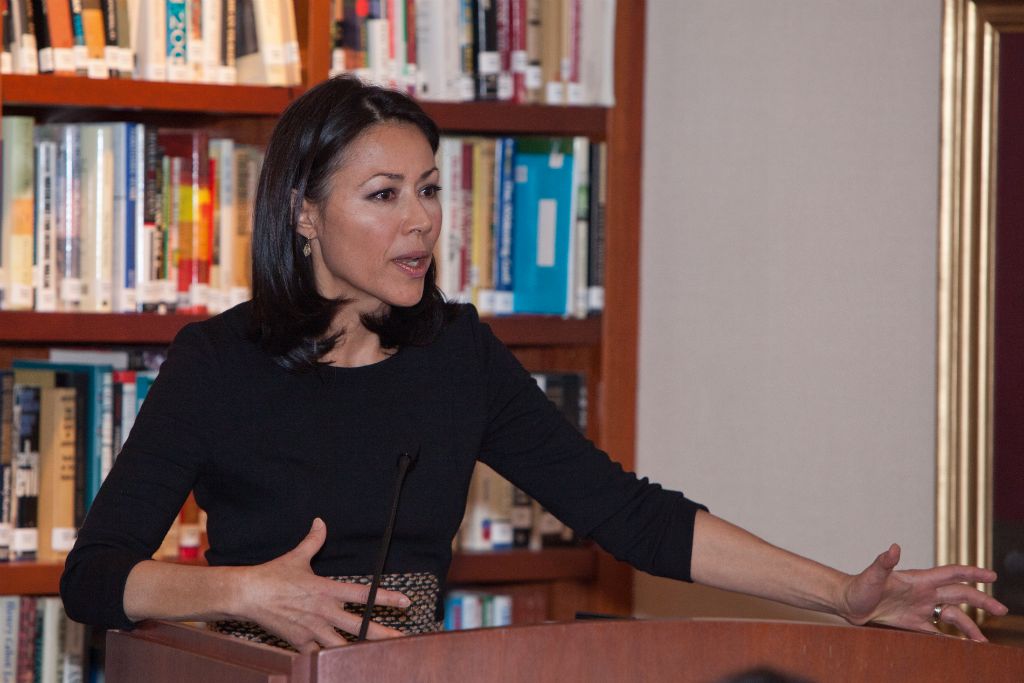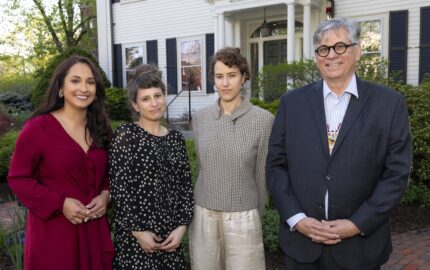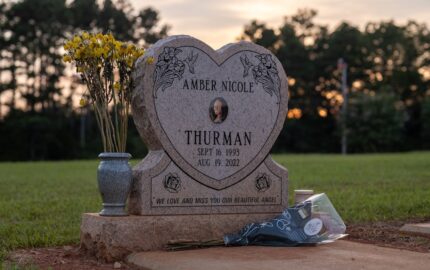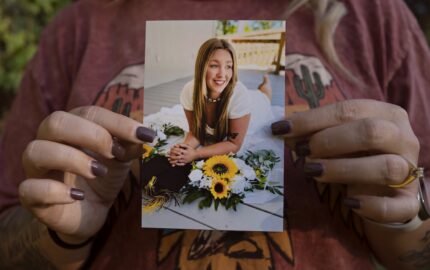“Why do we do it?”
Ann Curry asked that question about her work and the work of other foreign correspondents, during the 31st Joe Alex Morris, Jr. Lecture at the Nieman Foundation on February 2. In her case, she said, it’s for “a hope—one that is often unrequited—that some good will come out of what we do.”
Curry, a “Today” co-anchor who frequently reports from abroad for NBC News, spoke about covering crises, natural disasters, genocide and war in places such as Sudan, Somalia and Iran. She discussed stories that moved her and compelled her to stick with foreign reporting and spoke about the need for reporters to maintain empathy, even when interviewing dictators.
The Morris Lecture honors Los Angeles Times foreign correspondent Joe Alex Morris, Jr., who covered the Middle East for 25 years before he was killed during the Iranian Revolution in 1979. Two years later his family, friends and colleagues founded the annual lecture by an American foreign correspondent or commentator.
Curry started with NBC News in 1990 as a Chicago correspondent. She helped launch the 24-hour MSNBC cable network and spent 14 years as news anchor on “Today” before becoming co-anchor. She was also anchor of “Dateline NBC” from 2005 to 2011 and regularly fills in for Brian Williams on “NBC Nightly News.”
Adam Tanner, NF ’12 and Balkans bureau chief for Thomson Reuters, introduced Curry, praising her “commitment to foreign reporting and covering global crises in a medium that isn’t always friendly to foreign reporting.” He noted that Forbes ranked her the 66th most powerful woman in the world, ahead of Vogue editor Anna Wintour, Newsweek editor Tina Brown, and Harvard President Drew Gilpin Faust.
Curry, who has covered death and destruction around the world, opened the lecture by admitting that she probably suffers from post-traumatic stress disorder. “Anyone who does this type of reporting and says they don’t have PTSD is in denial,” she said. “Or possibly lying, or doesn’t realize it themselves.”
The symptoms, she pointed out, are often quiet and subtle, “an emotional rigidness” or “uncharacteristic lack of empathy” that can impair the ability to cover situations in foreign countries with “sharp clarity” and to “see past the differences” with other people. She stressed that the danger of psychological trauma is inherent in the work, and it can affect anyone, regardless of who they work for.
“No matter who hires you,” she said, “no matter how big the organization or how much money they have, they can’t pay you enough to deal with this.”
For her the lasting symbol of suffering—“the face that stays with me”—is a young woman from the Democratic Republic of the Congo she interviewed in 2008. The conflict in that country has already killed more people than any war since World War II, and rape has increasingly become a weapon against civilians.
Soldiers killed her parents when she was 17, gang-raped her for two days, and left her for dead. She became pregnant and delivered a stillborn baby. Two years later she was still in the hospital, where Curry met her.
“I asked her ‘Do you want revenge?’” Curry said. “Instead she said ‘All I want is to rise out of this bed and thank the people who saved me and cared for me. I want to praise God, and I want to feel a mother’s love again.’”
After the piece aired, “the phones lit up” with people wanting to know how to help, Curry said. But the calls she appreciated most were from people who were furious with her for putting the girl on TV and possibly subjecting her to additional harm.
“Here’s a woman from a country most people don’t know anything about,” she said, “and they’re concerned for her, this woman who was left for dead.”



